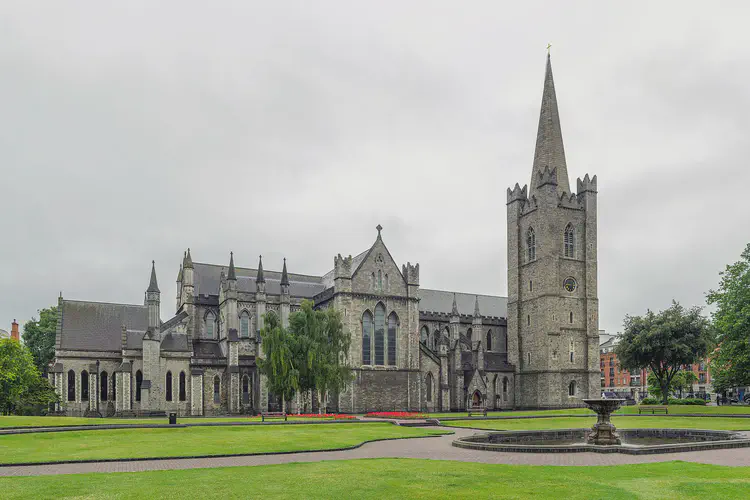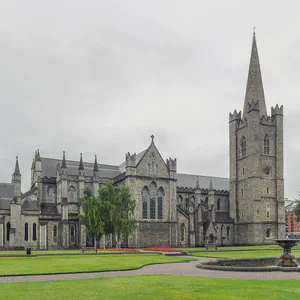John Travers, Chancellor of St Patricks Cathedral, Is Executed for High Treason at Oxmantown Green for Conspiring With Lord Offaly
Section: John Travers, Chancellor of St Patricks Cathedral, is executed for high treason at Oxmantown Green for conspiring with Lord Offaly
August 01, 1535

John Travers, who served as the Chancellor of St. Patrick’s Cathedral in Dublin, met a tragic end when he was executed for high treason at Oxmantown Green, Dublin. His involvement in a conspiracy with Lord Offaly (Silken Thomas) marked a significant episode in the turbulent history of Ireland during the Tudor period.
Background
- Role as Chancellor: As the Chancellor of St. Patrick’s Cathedral, John Travers held a significant ecclesiastical position in Dublin. St. Patrick’s Cathedral was, and remains, one of the most important religious institutions in Ireland, and the role of Chancellor was one of influence and prestige.
- Political Turbulence: The period was marked by political and religious upheaval, with tensions between the English crown and Irish lords. The Fitzgerald family, especially the Earls of Kildare, played a prominent role in the administration of Ireland but often found themselves at odds with the English authorities.
The Conspiracy with Lord Offaly
- Silken Thomas Rebellion: Lord Offaly, better known as Silken Thomas, was Thomas Fitzgerald, the 10th Earl of Kildare. In 1534, he led a major rebellion against King Henry VIII, which became known as the Silken Thomas Rebellion. The rebellion was sparked by a false rumor that his father, the 9th Earl of Kildare, had been executed in London, prompting Thomas to renounce his allegiance to the English crown.
- Involvement of John Travers: John Travers became involved in the rebellion, conspiring with Lord Offaly against the English authorities. His role in the conspiracy is less well-documented than that of Silken Thomas, but his position as Chancellor of St. Patrick’s Cathedral would have made his involvement particularly scandalous and treasonous in the eyes of the crown.
Execution for High Treason
- Arrest and Trial: Following the suppression of the rebellion, Travers was arrested and charged with high treason. High treason was the gravest of crimes, especially during a time when the English crown was asserting its authority over Ireland with increasing determination.
- Execution at Oxmantown Green: John Travers was executed at Oxmantown Green, a common site for public executions in Dublin. His death would have been intended as a stark warning to others who might consider rebelling against the crown.
- Historical Significance: Travers’ execution reflects the harsh penalties imposed by the English crown on those who defied its rule in Ireland. The rebellion of Silken Thomas, and the subsequent executions of its leaders, marked a turning point in the Tudor conquest of Ireland.
Legacy
- The Impact of the Rebellion: The failure of Silken Thomas’ rebellion and the execution of its leaders, including John Travers, led to the further consolidation of English power in Ireland. The rebellion also contributed to the eventual decline of the Fitzgeralds’ power in the region.
- Remembering John Travers: Although a less prominent figure in the rebellion, Travers’ execution as a high-ranking church official underscores the interconnectedness of political and religious authority in 16th-century Ireland.
John Travers’ fate serves as a reminder of the complexities and dangers of political and religious conflict in Tudor Ireland, where the consequences of rebellion were often severe and far-reaching.
